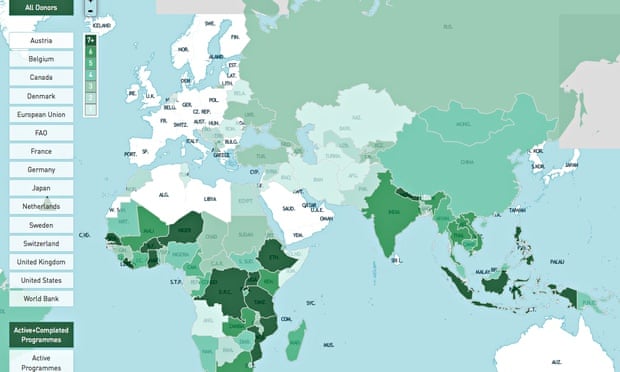
Achieving our global development objectives – better food security and nutrition, sustainable management of natural resources, less conflict, and broad-based economic growth for women and men – will require coordinated action by donors and development agencies, civil society organizations, governments, and the private sector in countries across the globe. To that end, USAID is leading a global effort to improve coordination and information sharing in the land and resource governance sector. Over the past year, USAID, first through the Knowledge Management and Technical Support Services (KMTSS) project and later through the Evaluation, Research and Communication (ERC) project, managed a data collection and visualization project that gathered information on the land governance programs from members of the Global Donor Working on Land.
The result of these efforts is a database of approximately 445 programs in over 119 counties with a total value of over $2.8 billion. Using the information in the database, ERC developed an interactive mapping tool that clearly displays where different donors and development agencies are working, and what they are working on, with respect to land and resource governance, including how each program supports specific aspects of the Voluntary Guidelines for the Responsible Governance of Tenure of Land, Fisheries, and Forests in the Context of National Food Security. This information can help stakeholders better coordinate these programs, avoid unnecessary duplication, and identify opportunities to leverage resources for greater impact.
On October 11, 2013, USAID Land Tenure and Property Right’s Division Chief, Dr. Gregory’s Myers, and ERC Training and Communication Specialist, Jeremy Green presented the donor database and map via web-conference to the Global Donor Working Group on Land at a side event at the 40th session of the U.N. Committee on World Security. After the presentation, representatives from the governments of Canada and Japan committed to join the donor database initiative. In December, the 2013 U.K. G8 Presidency Report highlighted the donor database initiative as an example of progress in this sector.
Ultimately, the database and maps are tools for information sharing. The real value of this initiative will be measured through greater coordination and collaboration resulting in improved development outcomes.

